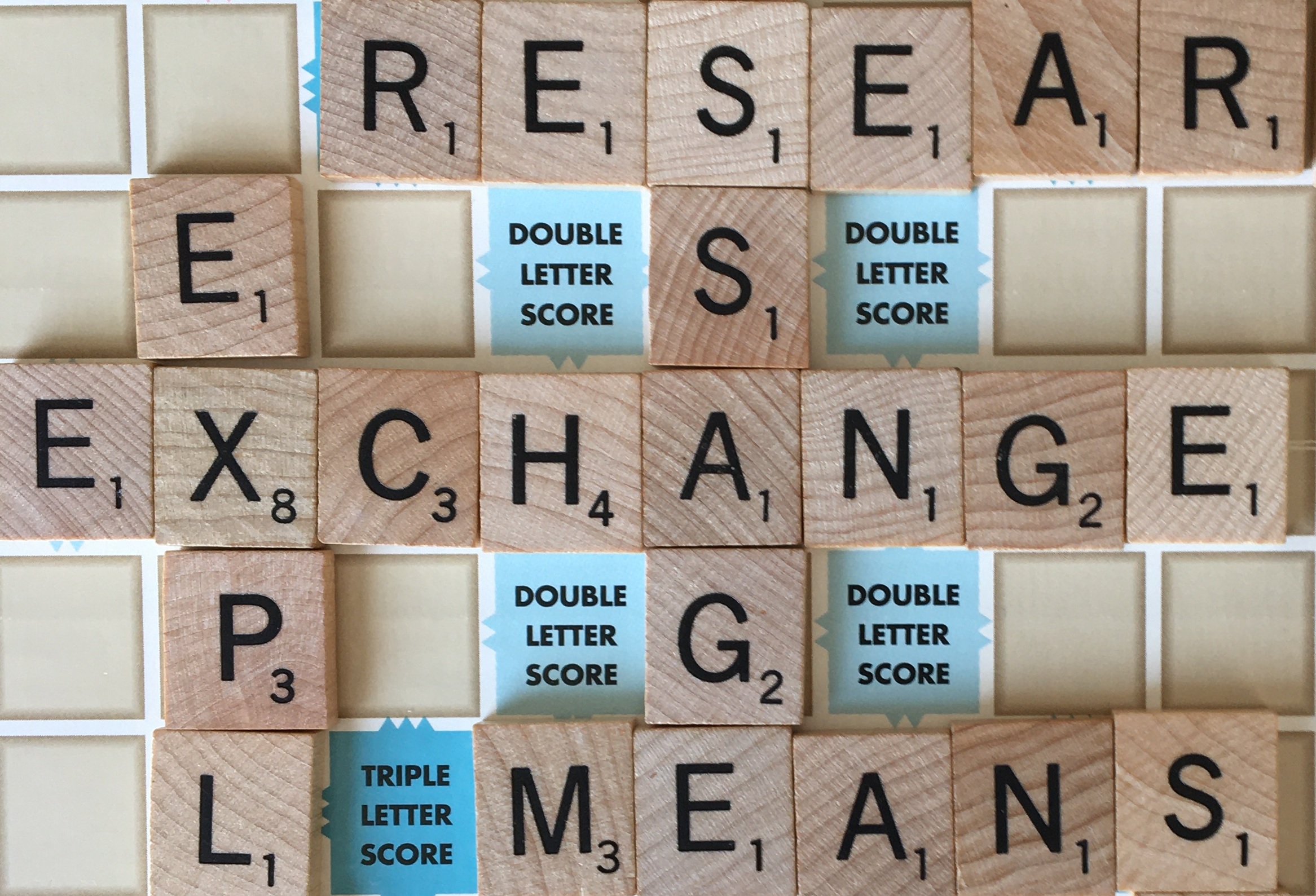Roundtable Your Research No. 1
Roundtabling is a verb — it's an action that you do.
You meet with your fellow doctoral researchers and you talk research. That's roundtabling. Here's how to do it.
You give your roundtablers group a portion of your current manuscript and then you ask,
"Can you tell me about such-and-such? And please, I'd also like to know if I really succeeded in demonstrating this-and-that."
Your fellow roundtablers read the portion of text right there and then, and afterward, they give you the feedback you've requested. All this takes just half an hour.
(Optionally, the roundtabling session might be extended by fifteen minutes of discussion. Here, the reading roundtablers tell the writing roundtabler whatever else is on their minds or whatever else they've noticed. The reading roundtablers give their own criticism or praise, they give their own advice or ideas. The discussion is open to anything related to the manuscript.)
Roundtabling works equally well online as in person. Everyone's schedule or whereabouts can readily be accommodated for. Roundtabling also works as well for presenting as it does for writing. I'll come to roundtabling presentations in some future blogpost.
Importantly, roundtabling needs no preparation by anyone involved. No preparation by the writer, and no preparation by the readers. No preparation, period. Let me explain. Let's say you have a portion of your current manuscript you want to have roundtabled. Now, that portion is anyway on your to-do list — in fact, you're already writing it. Well then, just bring it as it is to the roundtabling session. Your roundtable do not expect polish, so you don't need to add polish. Bring it as the thing looks during the five minutes ahead of the session. And see, just half an hour later you'll have actionable feedback on it.
So, it's clear, every single roundtabling session literally costs you only as much time and effort as it takes to talk about your manuscript for half an hour. That is very low cost for very big return. Just consider:
You gain what every writer sorely misses: immediate and tailor-made feedback. The feedback is on-site feedback. Your fellow roundtablers read your text and they feedback on your text. And, the feedback is on precisely what you've asked for feedback on, so whichever concern you might have about a manuscript, that's the concern which gets addressed by the feedback.
You gain the incentive to increase your productivity. It's proven, regular roundtabling sessions motivate researchers to write more. Every researcher has incentives enough to write every day, but this incentive, this roundtabling incentive, the incentive to share your daily progress on your manuscript with peers whom you can trust to tell you what they think — that incentive beats 'em all!
You gain valuable experience in collaboration. How many papers have you read that were authored by just a single researcher? I thought so. Science collaborates. You collaborate. But how much do your collaborate? How much are you collaborating right now? Why not meet on a weekly basis with three or four others, with people inside your group and outside? You'll learn to adopt other people's perspectives on your work, you'll learn to manage your time better, you'll learn to coordinate the group effort. You will learn to collaborate and so you'll be training your ability to research at your best.
You gain practice at reviewing. The benefits of reviewing papers are well-known. Scientists who review often are scientists who read heavily in the literature, who hone their powers of discernment in the research, who understand reviewers' concerns firsthand and so understand how to craft winning manuscripts. These benefits are missed by scientists who review but rarely, and that is a big loss. Frequent reviewing, on the other hand, is a big gain. And so is roundtabling. When roundtablers provide feedback, they are reviewing the material at hand. Thus, roundtabling is like reviewing, in miniature.
You gain a sort-of quarter-final review before you submit to the full review to the conference. The gain here really follows on the previous point about roundtablers being quasi-reviewers. Because, with that being true, it must also be true that roundtabling is quasi-reviewing. Therefore, your gain by roundtabling is that you have your manuscript vetted for the review process. Additionally, your roundtabling will instruct you more generally in how readers think. Every session you bring a manuscript to is one more batch of readers' perspectives to add to your writer's training set. The result: your accuracy enhance at seeing what you've written through the eyes of your readers.
In sum, roundtabling enables a fruitful exchange among researchers. It's the sort of exchange which simply will not come about by any other means. Roundtablers experience a general rise in their confidence as communicators, because roundtablers are really communicating in one continuous flow. They've integrated communication into their research process.
So, to form your own roundtablers group, either just ask around, or if you'd prefer a more discrete approach, just write me.
It's a good idea to tell prospective roundtable members the keywords of your research focus. Also, just get out in the open right away whether you prefer mornings or afternoons or evenings, and perhaps too, which day of the week suits best. All this simplifies scheduling.
Right, happy roundtabling!
| Please email comments or questions to daniel shea ∂does-not-exist.kit edu - Your feedback improves my blog! |

